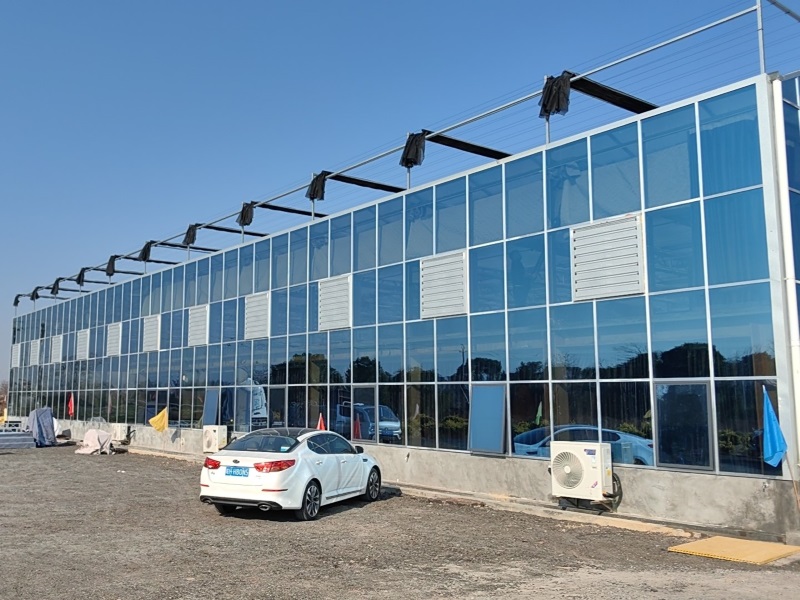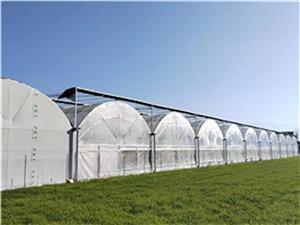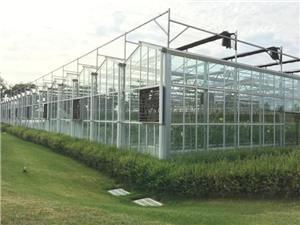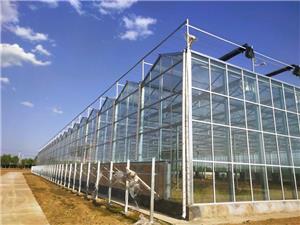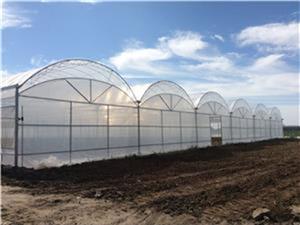What are the causes of soil hardening salinization in greenhouses?
What are the causes of soil hardening salinization in polycarbonate greenhouses?
Soil hardening and salinization is a common problem encountered in polycarbonate greenhouse, but also a major soil problem limiting vegetable production, it will seriously affect the growth of seedlings, affecting the yield and quality of vegetables, in addition, vegetable root rot frequently, serious problems of dead trees, sometimes also related to soil hardening salinization in polycarbonate greenhouses. Therefore, understanding the causes of soil hardening salinization, prevention and improvement in advance is also an important link in the production and quality improvement of greenhouse vegetables.
The slab salinization of greenhouse soil is mainly caused by the following factors:
1. Canopy film coverage limits leaching: the long-term cover of canopy film blocks the erosion of natural rain, so that the salt in the soil can not be washed away with the water cycle, resulting in the gradual accumulation of salt on the soil surface to form salinization.
2. Frequent irrigation and fertilization: greenhouse vegetables need continuous water supply and nutrients, but too frequent irrigation and fertilization will lead to high soil moisture, reduced permeability, and serious soil compaction due to salt accumulation, so soil compaction and salinization often occur together.
3. Improper use of chemical fertilizers: soluble salts contained in chemical fertilizers include sulfate, chloride and carbonate, such as sodium, potassium, calcium and magnesium, and excessive use will accumulate in the soil, aggravating salinization.
4. Lack of organic matter and microbial flora: Organic matter is an important component of soil aggregate structure and an energy source for microbial activities. The imbalance of microbial flora will cause particularly serious soil salinization and increase soil-borne diseases.
How to reduce and prevent soil compaction salinization?
Mulching and underfilm watering: mulching between rows of plants can be combined with drip irrigation technology, which can reduce soil surface evaporation, thereby slowing the rate of salt rising to the surface of the soil.
2. Use rain to wash the soil: Open the shed film in the summer idle period, use rain to wash the soil, and reduce the salt content of the soil surface. However, if the surrounding shed area disease is serious, this method should be carefully considered.
3. Implement crop rotation: quick-growing leafy vegetables or legumes can be planted in the gap between stubble changes to help reduce soil salt content by utilizing the absorbability of different crops to soil salt.
4. Increased application of organic and microbial fertilizers: The application of organic and microbial fertilizers can increase soil organic matter content, promote microbial diversity, improve soil structure, and help alleviate the problems of compaction and salinization.
5. Adopt integrated water and fertilizer technology: precisely control irrigation and fertilization through integrated water and fertilizer technology, which not only ensures the water and nutrients required for crop growth, but also avoids soil compaction and salinization caused by excessive irrigation and fertilization.
Soil compaction and salinization in polycarbonate greenhouse are caused by many factors. Through reasonable mulching film, reasonable irrigation, crop rotation system, increasing application of organic matter and microbial fertilizer, and implementing integrated management of water and fertilizer, soil compaction and salinization can be alleviated and prevented to provide a good soil environment for the growth of vegetables in polycarbonate greenhouses.
